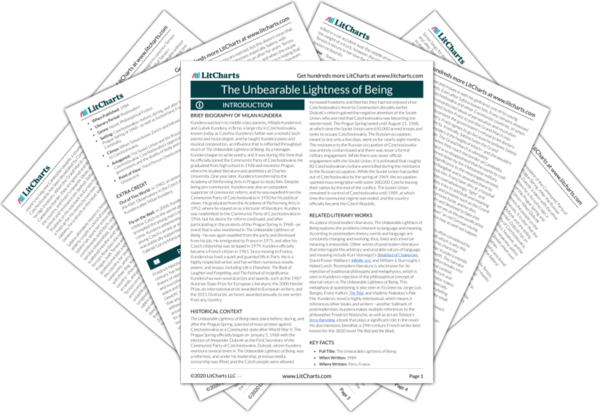Next
Summary
The Unbearable Lightness of Being Study Guide |
Next
Summary
|
Welcome to the LitCharts study guide on Milan Kundera's The Unbearable Lightness of Being. Created by the original team behind SparkNotes, LitCharts are the world's best literature guides.

Out of This World. In 1983, an asteroid that was discovered by the Klet’ Observatory in the Czech Republic was named 7390 Kundera after Milan Kundera.
Fly on the Wall. In 2008, Kundera was accused of informing on a fellow Czech to the secret police in the 1950s, which prompted the young man’s long-term imprisonment in a labor camp. Kundera vehemently denied any involvement in the young Czech’s arrest or acting as a police informant, and he was publically supported by fellow writers Salman Rushdie and Gabriel García Márquez.